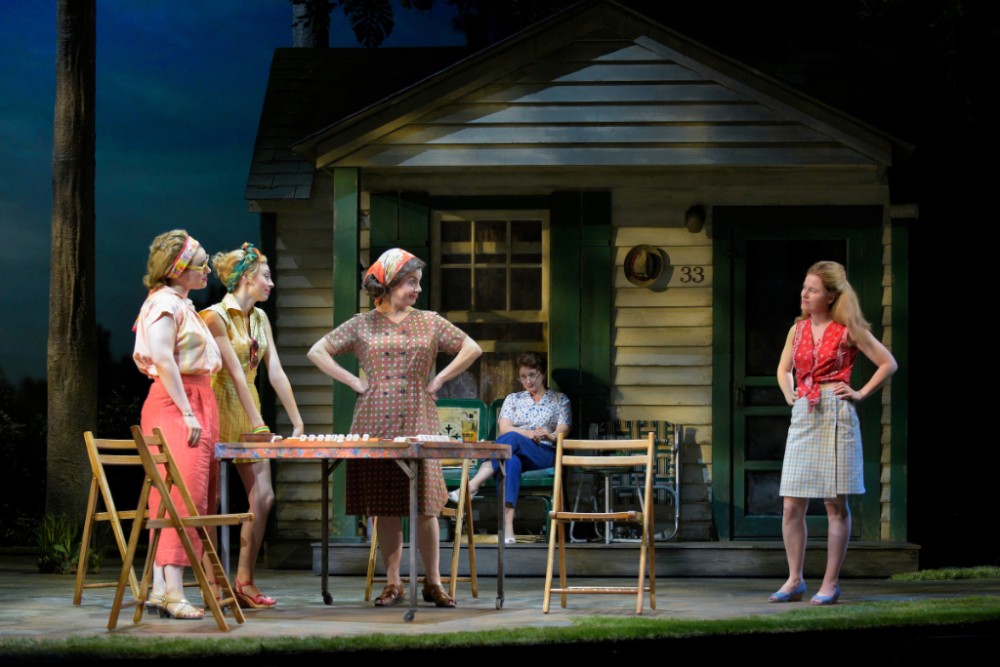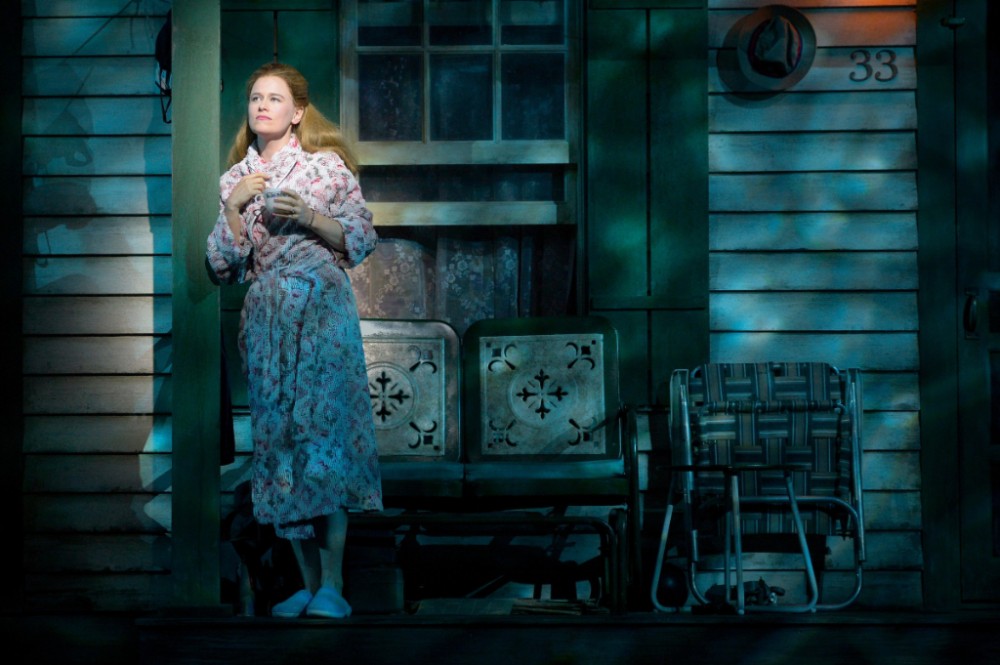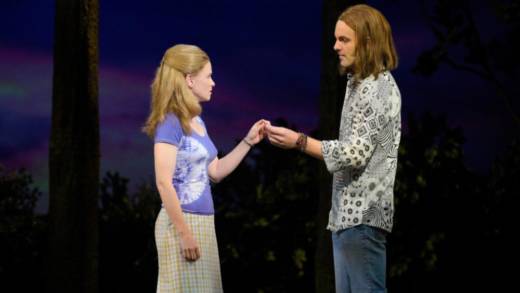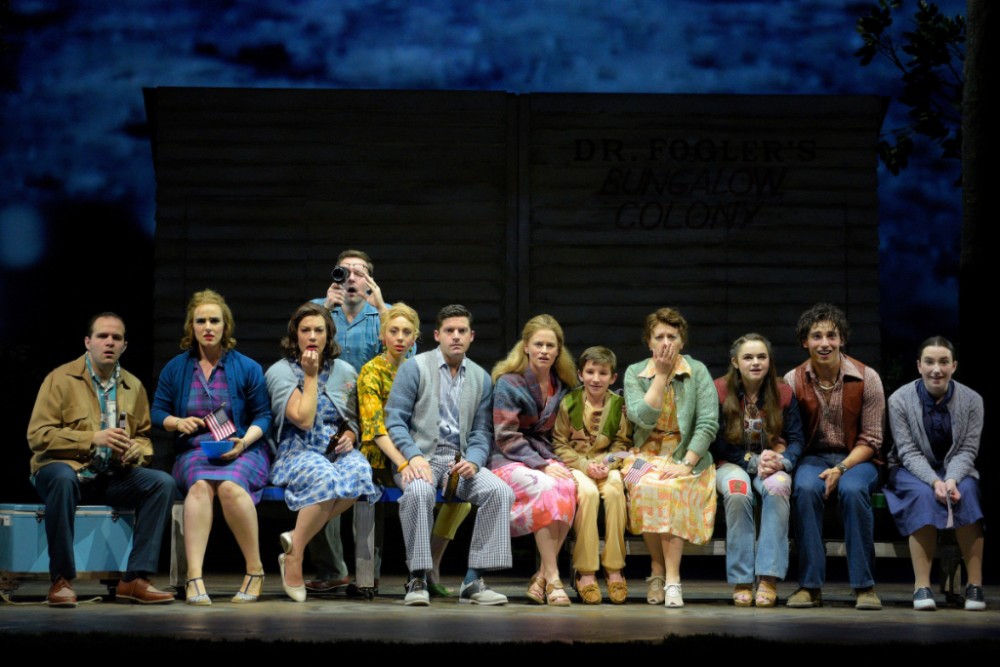It’s the summer of 1969 and everything is on the cusp. Neil Armstrong is about to make one giant leap for mankind. Woodstock is set to define the era. Altamont has yet to end it. The free-love revolution is at its peak, but for the vacationers at Dr. Fogler’s Bungalow Colony in upstate New York, it may as well be 1959.
A working-class Catskills resort, Fogler’s hosts a coterie of summer regulars, women and children deposited there for the season while their husbands remain in the city to work, coming up only on the weekends. For the ladies, it’s a breeze: no cooking, no cleaning, no sex.
For 14-year-old Alison Kantrowitz, being stuck at an old-fashioned family camp while the rest of the world explodes into newness is unbearable. For her mother Pearl, just a scant 16 years older than Alison, it’s a restless summer of regular duties suddenly dulled by an empty ache that she just can’t define. Over the course of A.C.T.’s world premiere musical, A Walk on the Moon, the two women will find their lives changed by lust, NASA, cheap blouses, and rock ‘n’ roll.

Just as in 1959, men are the agent of change. Alison (an outstanding Brigid O’Brien) will meet teenaged Ross (Nick Sacks) and begin her journey to womanhood. Pearl (Katie Brayben) will meet Walker Jerome (Zak Resnick), a blouse salesman working to earn enough bread to blow out of the Catskills and into San Francisco, and be forced to reconsider her life.
Pearl’s husband Marty (Jonah Platt), a TV repairman overwhelmed at work fixing sets in advance of the televised moon walk, his mother Lillian (Kerry O’Malley), and son Danny (Elijah Cooper the night of review) round out the Kantrowitz’s tiny cabin. Of course there are neighboring families and of course, there is mah-jongg.

Based on screenwriter Pamela Gray’s 1999 movie of the same name, the musical’s book was also written by Gray — which is where the trouble begins. The film and musical follow exactly the same arc, and share much verbatim dialogue. Both are overly long and sentimental; both celebrate constancy and family over impetuousness and change; and both trap their characters in stereotypes of unfulfilled housewife and harried husband. In the film, the clichés are made bearable by the unique sexual tension that Diane Lane and Viggo Mortensen bring to their roles as Pearl and Walker. In the musical, staged nearly 20 years later, the sexual connection is clumsily managed and the clichés feel lazy. Directed by Sheryl Kaller, Resnick embarrassingly paws at and nuzzles Brayben’s breasts and seemingly no one has thought to take a 21st century look at mid-20th century ennui with fresh eyes.

What’s more, the ’40s-era swing, ’50s pop songs, and ’60s rock that enlivened the film don’t make the transition to stage. The musical, while featuring some 20 original songs by Paul Scott Goodman, makes nearly no reference to the rock revolution in which it’s set. Rather, Moon serves up generic Broadway-style music with none of the fun, verve, or imagination that makes big Broadway shows so thrilling. Most cruelly of all, there is nothing to hum. Goodman’s lyrics tend to such empty fodder as “when I was lost and lonely you came into my life and set me free,” and the cringe-inducing “We Made You,” in which shooting stars and semen share metaphor.




